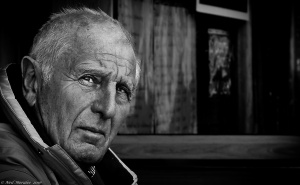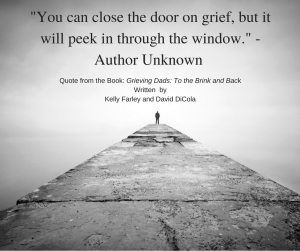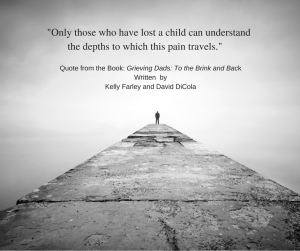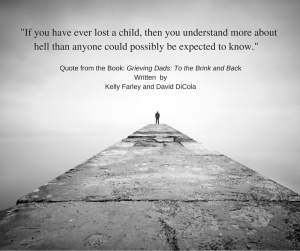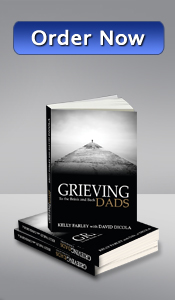The following article was sent to me by Jennifer Scott at Spirit Finder and it was written/published by DrugRehab.org. I think its a great read and wanted to share it with all the followers of Grieving Dads. Make sure you click on the active links in this article, it will take you to other great reads about this subject matter. I have heard from many grieving dads that have struggled with substance abuse after the loss of a child. Please comment and let me know what you think of this subject matter and great resource. Peace.

Overcoming The Loss Of A Child Without Drugs Or Alcohol: A Parents Guide
The death of a child is one of life’s most agonizing challenges. No parent can ever be truly prepared for the grief that comes with this kind of loss. In some cases, it can lead a devastated parent to turn to drug or alcohol use in an attempt to cope — but in fact, substance abuse only creates a bigger problem.
This guide is for any parent who has recently lost a child and may be having an especially difficult time coping. It will discuss the kinds of emotions and obstacles to expect, the risks of drug and alcohol dependency, as well as healthy, effective ways to cope with your grief. The healing process is just that: a process. It will be a long, tumultuous journey, but one you can find your way through.
What Comes Next: The Emotions To Expect Throughout Your Healing
First, it’s important to note that there is no “correct way” to grieve. Some people may be so overcome with sadness that they constantly cry; others may feel too numb to show much emotion at all. Everyone will need to be supported no matter what they’re feeling, even if it’s difficult to understand. Don’t be afraid to express your grief outwardly, but keep in mind that just because you don’t see the same display of emotions in others doesn’t mean they feel nothing.
This difference in coping is often most apparent between men and women, and this can cause two grieving parents to butt heads at a time they need each other most. Men often take a logical standpoint, trying to take care of things they have control over: the funeral arrangements, getting back to work, and caring for their partner. Some men feel as though they shouldn’t show their grief because of societal pressures to be the family rock. Though it’s understandable that men feel as though they are held to a different standard, it’s important to recognize that showing emotion is not a sign of weakness. A father who has lost a child should feel open to express himself in any way that he needs to, whether it’s taking some alone time, openly weeping, or finding ways to laugh through his grief.
The emotional rollercoaster the loss of a child brings may cause you to experience many different things, including:
- Shock
- Confusion
- Depression
- Loneliness
- Anger
- Bitterness
- Guilt
- Resentment
These kinds of feelings may occur at any time following the loss of a child in any order. One parent may stay stuck in a state of shock for several weeks while the other may immediately feel angry, then guilty.
When a child dies, so do many hopes and dreams of the parents. Their future is forever altered in a devastating way, and they have to constantly cope with the different aspects of that fact. Some harsh realities are easier to see in advance — knowing you’ll never see your child get married — while others may sneak up on you. For example, if you planned to teach your child to play basketball one day, you may feel a sudden surge of anger or sadness when you see something related to the sport. Even years after the fact you may feel resentment at the graduation ceremony of a niece or nephew, remembering that your child won’t experience their own. Accepting the loss of these painful realizations isn’t easy, but it is an important step in your grieving.
The Risks of Addiction in the Grieving Process
For some parents the death of a child can be too devastating to bear, so they may seek out ways to lessen or even completely numb the pain. Drinking is a common part of the grieving process in many different cultures, and it can quite easily snowball into a major problem for someone who’s having an extreme reaction to the loss. It’s a slippery slope for anyone, but especially for those who have a family history of addiction.
Parents With A History Of Substance Abuse
Losing a child can lead them to question their sobriety. They may feel so devastated that they can no longer see any point in staying sober, or even wonder if their child’s death is some kind of penance for their past. It’s normal to feel torn about the things you were once sure of, because losing a child goes against the rules of nature; parents never expect to outlive their children. Losing that kind of certainty can make you question if everything you thought you knew was wrong, even the decision to stay sober. This can be even further amplified if your family was a major part of what led you to quit using — to some, it may feel like it was all for nothing.
The moment these thoughts enter your mind, you need to tell someone. Tell your partner, your sponsor, or a trusted loved one. You may even want to reach out to a drug counselor, or a therapist who specializes in addiction and/or post-traumatic stress disorder. Even if you’ve been in control of your addiction for many years, this kind of devastation can trip up even the most committed of recovering addicts, so don’t hesitate to reach out for help. It’s better to preemptively seek support than to risk succumbing to temptation and putting your sobriety — and your own life — at risk.
Reaching out if you’re struggling with your sobriety isn’t just about preventing relapse; being open about this challenge will be an important step in moving forward. If you do somehow blame yourself for your child’s death and it’s tied to your addiction, you need to sort out those feelings. You must be able to confront both the symptom (your desire to use) and the underlying problem (your guilt) in order to truly heal.
Parents With A History Of Substance Abuse
Losing a child can lead them to question their sobriety. They may feel so devastated that they can no longer see any point in staying sober, or even wonder if their child’s death is some kind of penance for their past. It’s normal to feel torn about the things you were once sure of, because losing a child goes against the rules of nature; parents never expect to outlive their children. Losing that kind of certainty can make you question if everything you thought you knew was wrong, even the decision to stay sober. This can be even further amplified if your family was a major part of what led you to quit using — to some, it may feel like it was all for nothing.
The moment these thoughts enter your mind, you need to tell someone. Tell your partner, your sponsor, or a trusted loved one. You may even want to reach out to a drug counselor, or a therapist who specializes in addiction and/or post-traumatic stress disorder. Even if you’ve been in control of your addiction for many years, this kind of devastation can trip up even the most committed of recovering addicts, so don’t hesitate to reach out for help. It’s better to preemptively seek support than to risk succumbing to temptation and putting your sobriety — and your own life — at risk.
Reaching out if you’re struggling with your sobriety isn’t just about preventing relapse; being open about this challenge will be an important step in moving forward. If you do somehow blame yourself for your child’s death and it’s tied to your addiction, you need to sort out those feelings. You must be able to confront both the symptom (your desire to use) and the underlying problem (your guilt) in order to truly heal.
Parents Without A History Of Substance Abuse
The risk of escalating from mourning to addiction is still significant. Some may use drugs or alcohol to numb the pain, as an escape from the agonizing reality they can’t face. They may even excuse their excessive use with the justification that once they’ve had a certain amount of time to drown their sorrows, they’ll be able to pull themselves out of their abusive patterns. Unfortunately, this process not only lengthens the time it will take to grieve, it actually makes it much more excruciating. Those feelings will have to surface eventually, but with constant repression will only build and build.
As a grieving parent continues to abuse substances following the death of a child, the danger continues to increase. As their tolerance grows, they must use more and more of a drug to get the same effect. Some may escalate their drinking to new highs, others may start to look for a new or stronger high and resort to more intense drugs. A person who once only drank socially may begin abusing prescription painkillers or anti-anxiety medication, convinced that because it came from a doctor it cannot truly be drug abuse. Unfortunately, prescription drug abuse is a rapidly-growing problem in America, largely because of how quickly it causes a person to become dependent.
Parents Without A History Of Substance Abuse
The risk of escalating from mourning to addiction is still significant. Some may use drugs or alcohol to numb the pain, as an escape from the agonizing reality they can’t face. They may even excuse their excessive use with the justification that once they’ve had a certain amount of time to drown their sorrows, they’ll be able to pull themselves out of their abusive patterns. Unfortunately, this process not only lengthens the time it will take to grieve, it actually makes it much more excruciating. Those feelings will have to surface eventually, but with constant repression will only build and build.
As a grieving parent continues to abuse substances following the death of a child, the danger continues to increase. As their tolerance grows, they must use more and more of a drug to get the same effect. Some may escalate their drinking to new highs, others may start to look for a new or stronger high and resort to more intense drugs. A person who once only drank socially may begin abusing prescription painkillers or anti-anxiety medication, convinced that because it came from a doctor it cannot truly be drug abuse. Unfortunately, prescription drug abuse is a rapidly-growing problem in America, largely because of how quickly it causes a person to become dependent.
The Best Way To Avoid Developing An Alcohol Or Drug Abuse Problem
The best way to avoid developing an alcohol or drug abuse problem is to find healthy ways to cope with your grief. First, be honest about how you’re feeling and allow yourself to acknowledge it. It’s OK to cry if you’re sad and to vent your frustrations if you’re angry, but do try to avoid directly taking it out on others. Sometimes, all it takes is asking a loved one to sit and listen, or if you prefer to be alone taking a few minutes in another room. If you aren’t ready to be open just yet, take your time, but let your family and friends be a crutch when you can. Some people find it helpful to have someone with a completely outside perspective and no emotional attachment to the deceased, so consider reaching out to a professional therapist to make sure you’re coping with your feelings.
Keep the lines of communication open with your co-parent, even if the two of you are no longer together. You each have the unique perspective to help one another cope, so reach out and keep the door open as much as possible. However, be careful not to shut out your current partner in the process — they are suffering a loss, too, and you will need to lean on each other for support. Talk about how you’re feeling on a regular basis, and truly listen to what each other has to say. If you don’t understand what they’re going through, don’t become upset or make accusations; instead, ask questions and make the genuine effort to empathize. Keep in mind that just as you need your partner to try to see where you’re coming from, they need the same in return.
Be patient and kind with your partner even when you disagree, and let them know you love them every chance you get. Be honest about any challenges you’re facing with your loss and addiction recovery, and don’t be afraid to ask your spouse if the topic is relevant to him or her. The understanding between you should be completely honest and confident: you should each feel totally comfortable going to the other about any issue. Make sure you hold up your end of the bargain — even if you wanted a glass of wine just for a second yesterday and it quickly passed, share it with your partner. They will appreciate your candor, and may even find the strength to tell you about a challenge they wouldn’t have previously shared.
It’s important to maintain or begin healthy habits after your child’s passing. It may not be easy to feel motivated enough to commit to staying active, but you must find positive coping strategies in order to stay on a clean path. Find ways to get physically active, perhaps taking a walk every day or joining a health club. Exercising increases your body’s production of endorphins, which can naturally lift your mood. True, a workout won’t completely eliminate your overall grief, but it’s a healthy way to burn off stress and avoid negative behaviors.
Keep the lines of communication open with your co-parent, even if the two of you are no longer together. You each have the unique perspective to help one another cope, so reach out and keep the door open as much as possible. However, be careful not to shut out your current partner in the process — they are suffering a loss, too, and you will need to lean on each other for support. Talk about how you’re feeling on a regular basis, and truly listen to what each other has to say. If you don’t understand what they’re going through, don’t become upset or make accusations; instead, ask questions and make the genuine effort to empathize. Keep in mind that just as you need your partner to try to see where you’re coming from, they need the same in return.
Be patient and kind with your partner even when you disagree, and let them know you love them every chance you get. Be honest about any challenges you’re facing with your loss and addiction recovery, and don’t be afraid to ask your spouse if the topic is relevant to him or her. The understanding between you should be completely honest and confident: you should each feel totally comfortable going to the other about any issue. Make sure you hold up your end of the bargain — even if you wanted a glass of wine just for a second yesterday and it quickly passed, share it with your partner. They will appreciate your candor, and may even find the strength to tell you about a challenge they wouldn’t have previously shared.
It’s important to maintain or begin healthy habits after your child’s passing. It may not be easy to feel motivated enough to commit to staying active, but you must find positive coping strategies in order to stay on a clean path. Find ways to get physically active, perhaps taking a walk every day or joining a health club. Exercising increases your body’s production of endorphins, which can naturally lift your mood. True, a workout won’t completely eliminate your overall grief, but it’s a healthy way to burn off stress and avoid negative behaviors.
Don’t lose sight of the things that are important to you. If you have other children, make sure you show them the same love and support you always have. Allow yourself to feel joy that they are still with you. Actively seek out things throughout your day that make you feel happy, even if it’s simply the kiss goodbye from your spouse in the morning. Every moment of happiness counts — especially when you’re facing the intense darkness of a child’s death — so let yourself be grateful for them as they arrive. It’s OK to still feel sad over your loss, but don’t let it overshadow the wonderful people and things still in your life.
In addition to staying physically active, consider finding a creative outlet with which to express your emotions. Painting, poetry, music, and dance are all wonderful ways to find your voice, even if you’ve never tried before. You don’t have to share your creations with others, but you may discover it’s a unique way to honor the memory of your child. It may even help you communicate better with your partner — perhaps in the moment your words fail, but you’re able to sit down later and put them to paper with time and careful thought.
Have your support system on constant standby, and don’t be hesitant to ask for help. Your sponsor should be an easy-access contact in your mobile phone and on speed-dial at the office. The moment you’re feeling anxious or feeling overwhelmed with negative thoughts, reach out to those you can count on. You may even find that making small social gestures can briefly alleviate the pain or loneliness you’re feeling — asking a coworker to eat lunch together, for example. You don’t have to talk about your child or anything related to his or her death; you might even enjoy chatting about something light like the weather or the new office dress code. It can be a nice escape from negative thoughts and a positive way to make new connections.
Avoid situations where you typically used drugs or alcohol in the past. The less you’re around temptation, the more you can focus your mind on more productive things. You might find it rewarding to spend your free time volunteering with a local child bereavement organization, or getting more active in your sobriety groups. Some parents work through their loss by organizing a tribute to their child, be it planting a tree in his or her memory or holding a fundraiser for a specific medical condition. Honoring your child in this way, even if it’s an unofficial ceremony with only close friends and family, can bring a greater feeling of acceptance surrounding the death. It can be something positive to focus on that keeps you on a healthy path, leaving you with a sense of fulfillment, joy, and pride.
Don’t lose sight of the things that are important to you. If you have other children, make sure you show them the same love and support you always have. Allow yourself to feel joy that they are still with you. Actively seek out things throughout your day that make you feel happy, even if it’s simply the kiss goodbye from your spouse in the morning. Every moment of happiness counts — especially when you’re facing the intense darkness of a child’s death — so let yourself be grateful for them as they arrive. It’s OK to still feel sad over your loss, but don’t let it overshadow the wonderful people and things still in your life.
In addition to staying physically active, consider finding a creative outlet with which to express your emotions. Painting, poetry, music, and dance are all wonderful ways to find your voice, even if you’ve never tried before. You don’t have to share your creations with others, but you may discover it’s a unique way to honor the memory of your child. It may even help you communicate better with your partner — perhaps in the moment your words fail, but you’re able to sit down later and put them to paper with time and careful thought.
Have your support system on constant standby, and don’t be hesitant to ask for help. Your sponsor should be an easy-access contact in your mobile phone and on speed-dial at the office. The moment you’re feeling anxious or feeling overwhelmed with negative thoughts, reach out to those you can count on. You may even find that making small social gestures can briefly alleviate the pain or loneliness you’re feeling — asking a coworker to eat lunch together, for example. You don’t have to talk about your child or anything related to his or her death; you might even enjoy chatting about something light like the weather or the new office dress code. It can be a nice escape from negative thoughts and a positive way to make new connections.
Avoid situations where you typically used drugs or alcohol in the past. The less you’re around temptation, the more you can focus your mind on more productive things. You might find it rewarding to spend your free time volunteering with a local child bereavement organization, or getting more active in your sobriety groups. Some parents work through their loss by organizing a tribute to their child, be it planting a tree in his or her memory or holding a fundraiser for a specific medical condition. Honoring your child in this way, even if it’s an unofficial ceremony with only close friends and family, can bring a greater feeling of acceptance surrounding the death. It can be something positive to focus on that keeps you on a healthy path, leaving you with a sense of fulfillment, joy, and pride.
Whether or not you’re a recovering addict, the death of a child can be a slippery slope into substance abuse. Allow yourself to be open and honest about your grief, lean on your loved ones, and don’t be afraid to ask for extra help when you need it. Don’t let any progress you’ve already made get lost in your sorrow — falling into old, dangerous habits will only exacerbate your pain. It may seem like there is no light among darkness, but with time and patience, there is healing.





